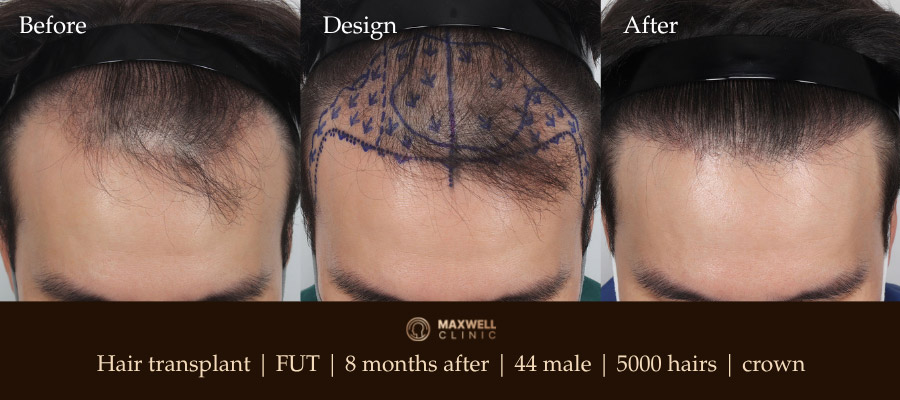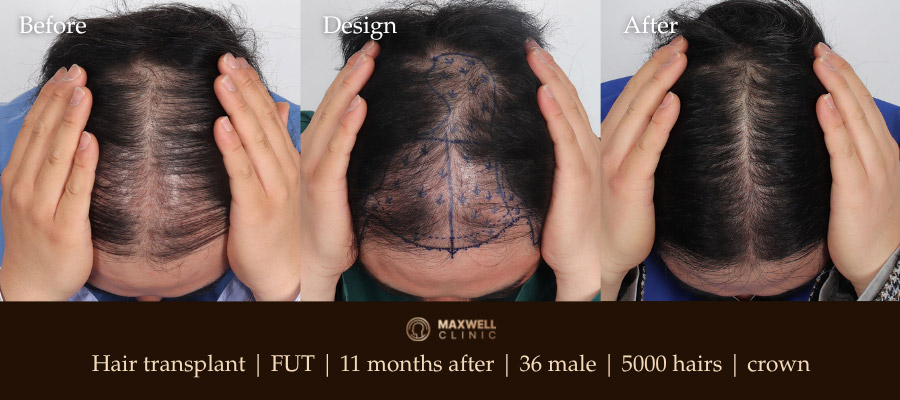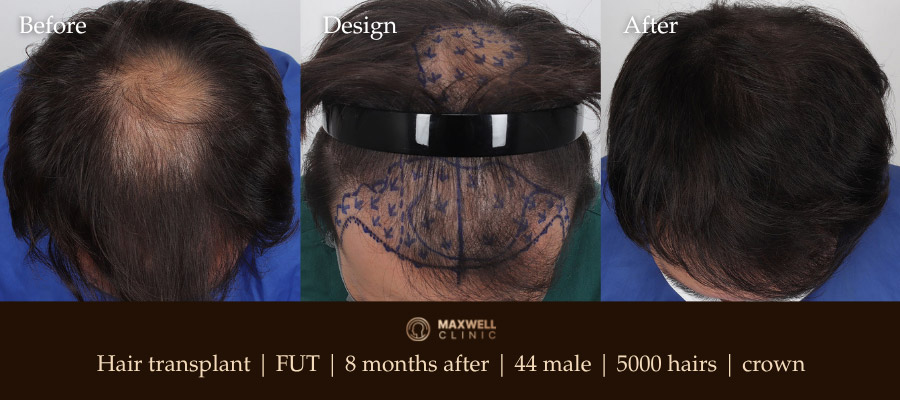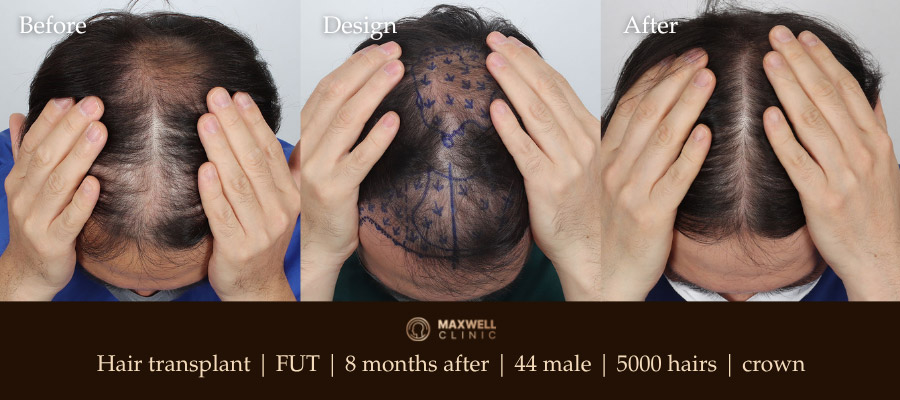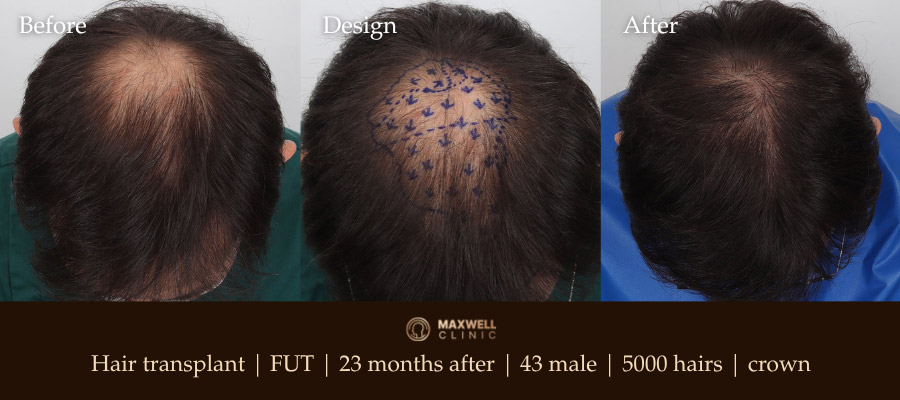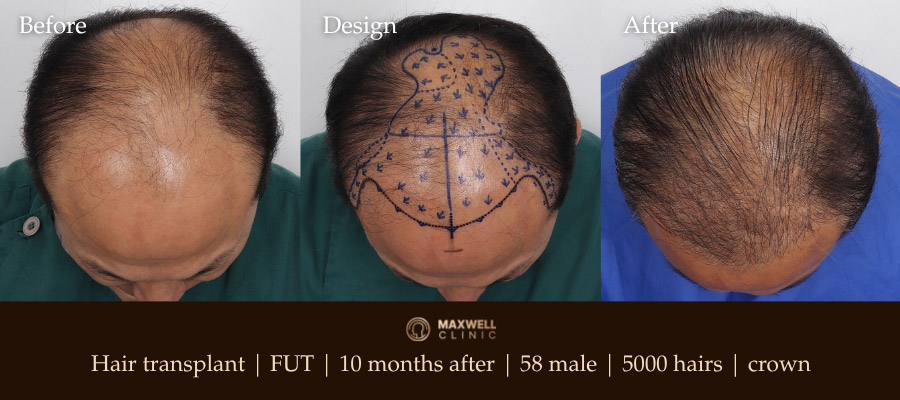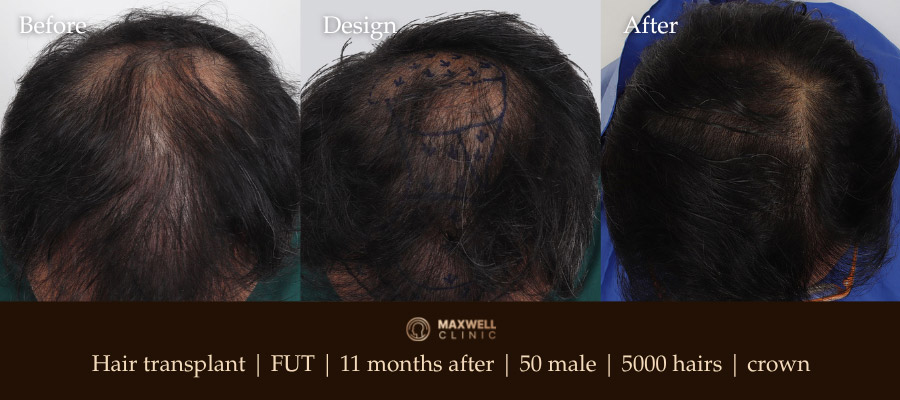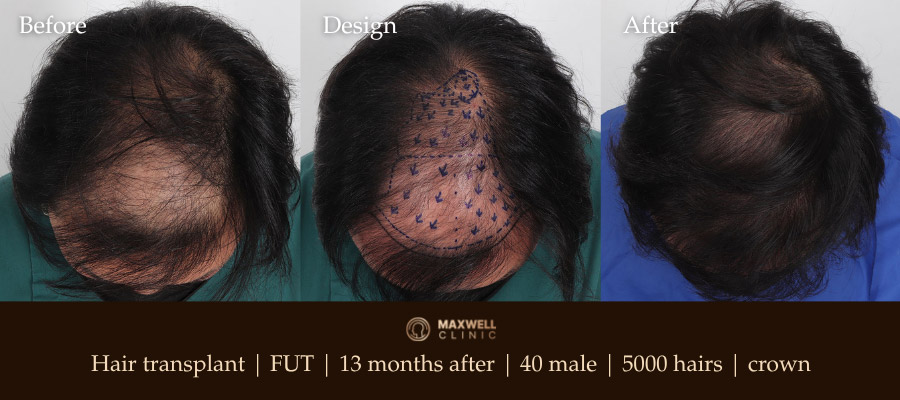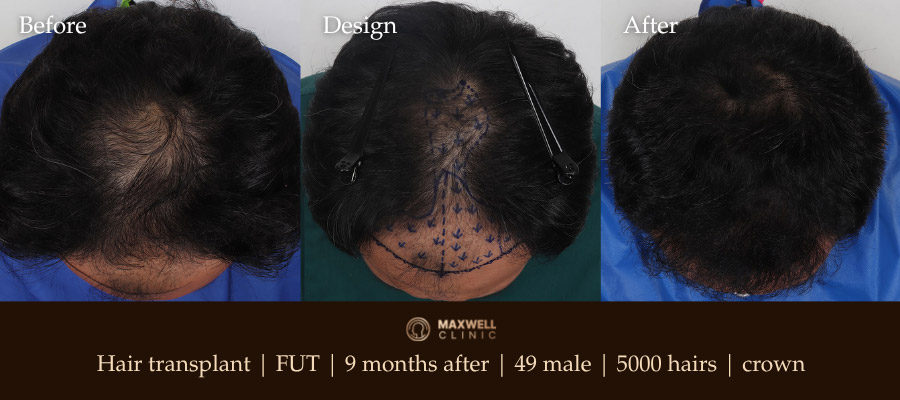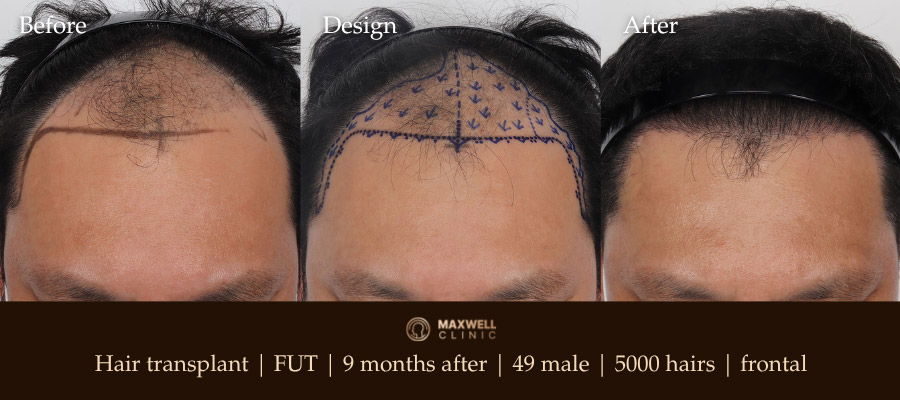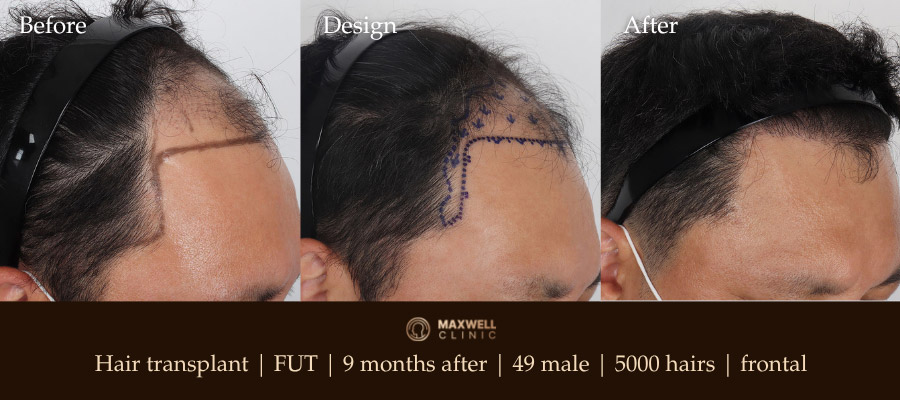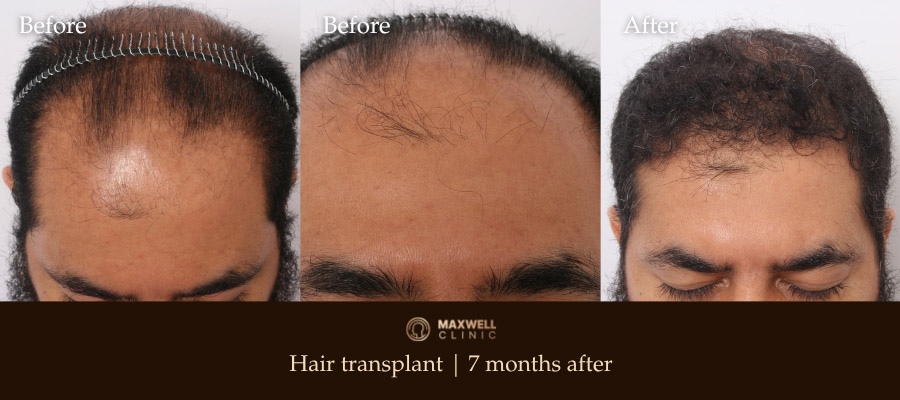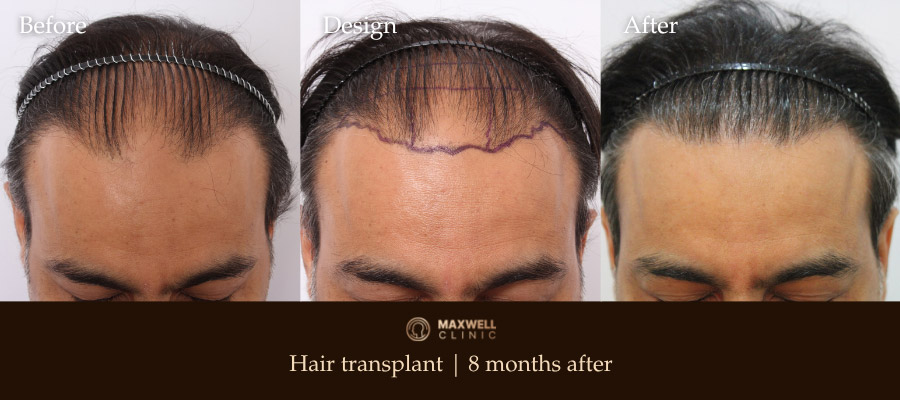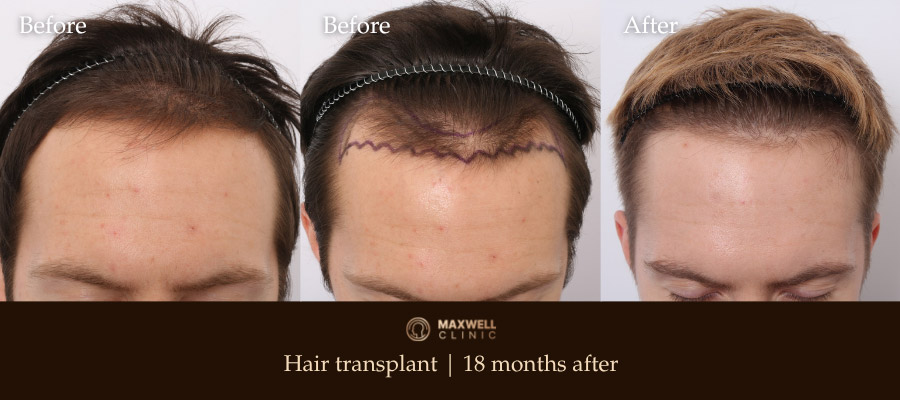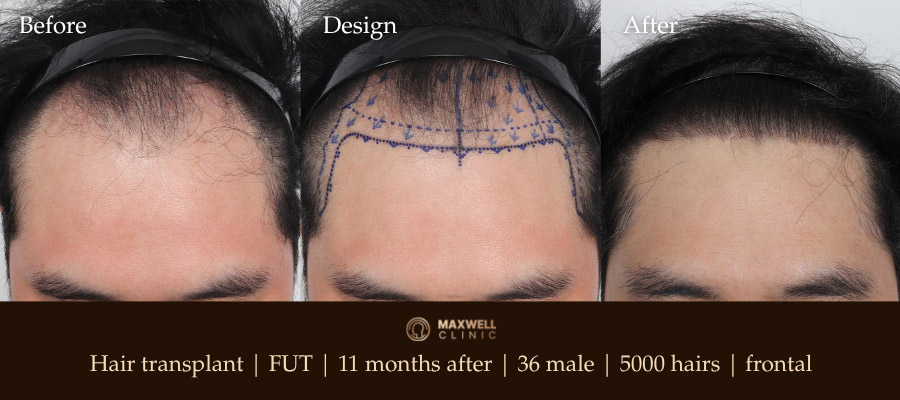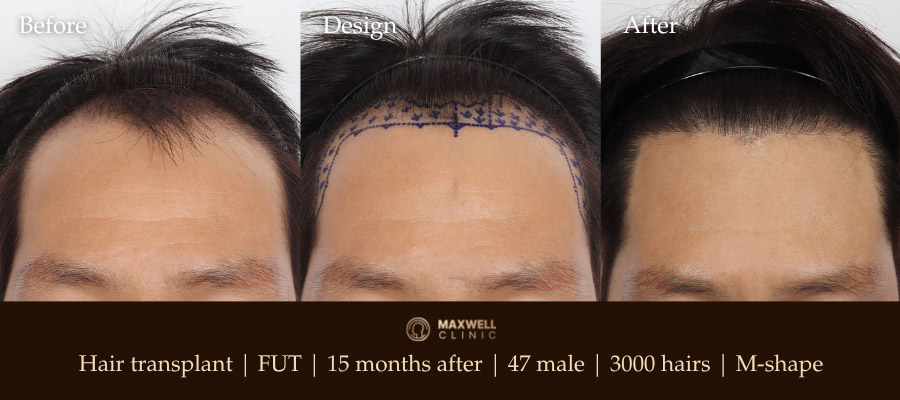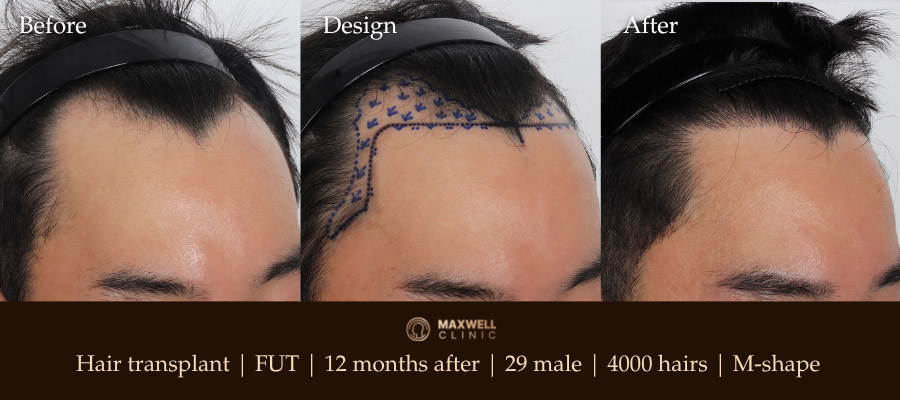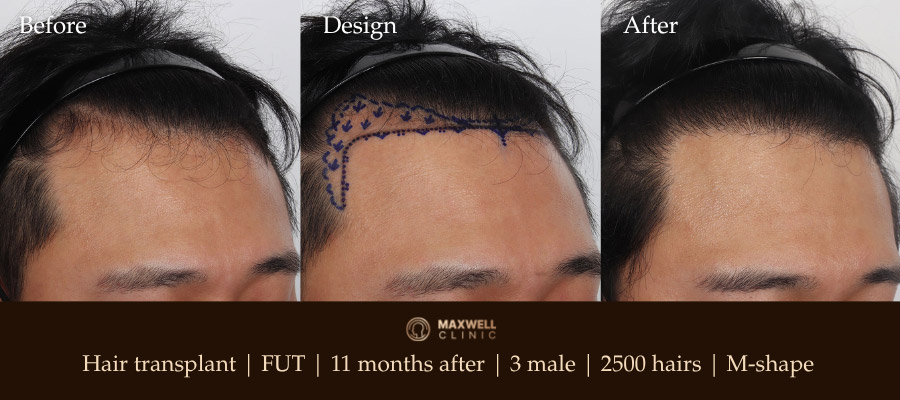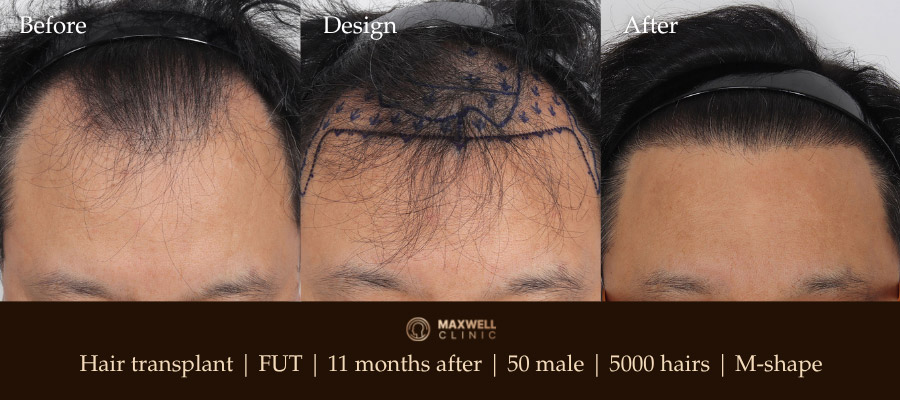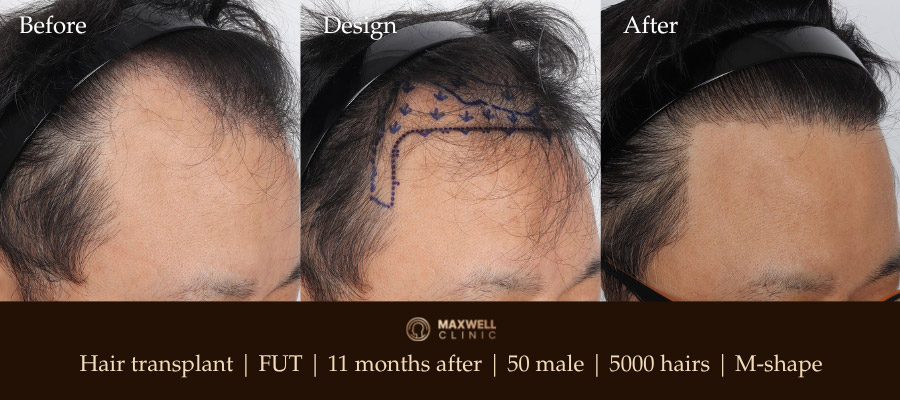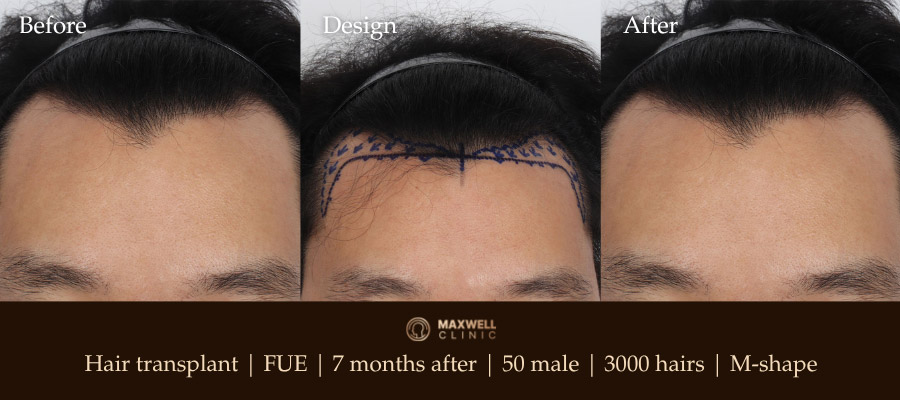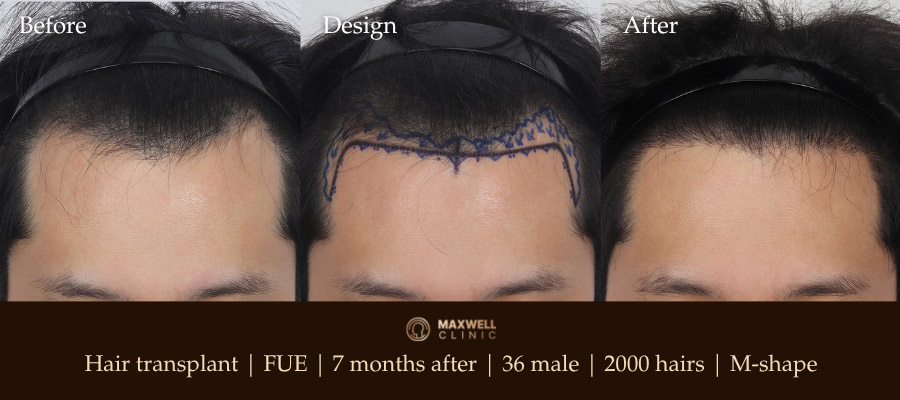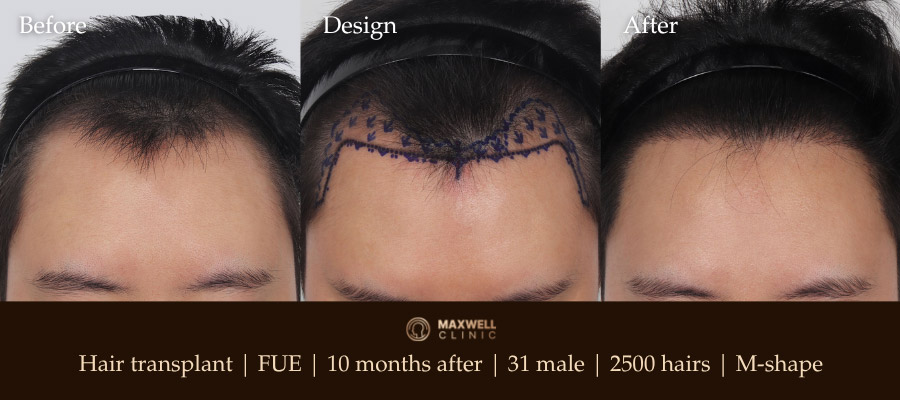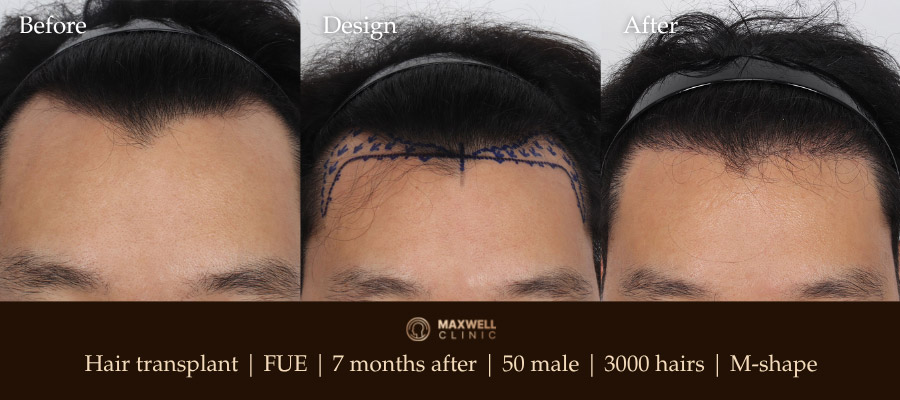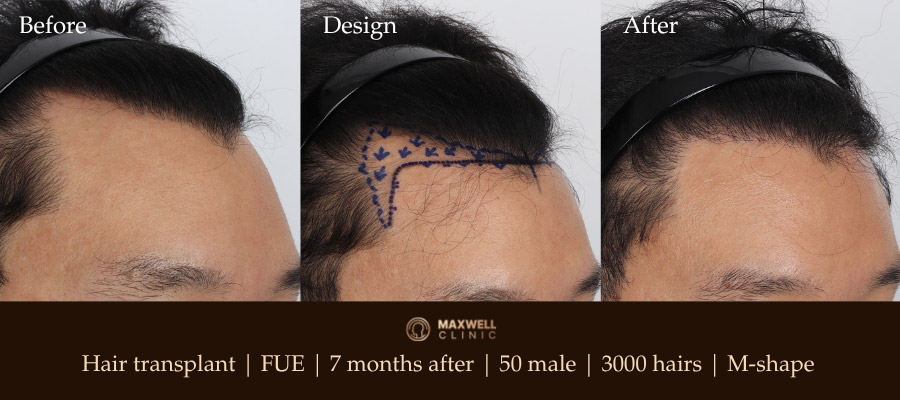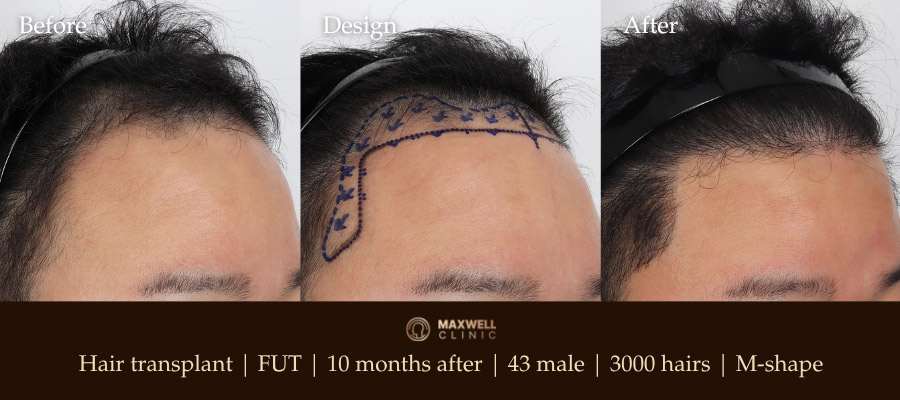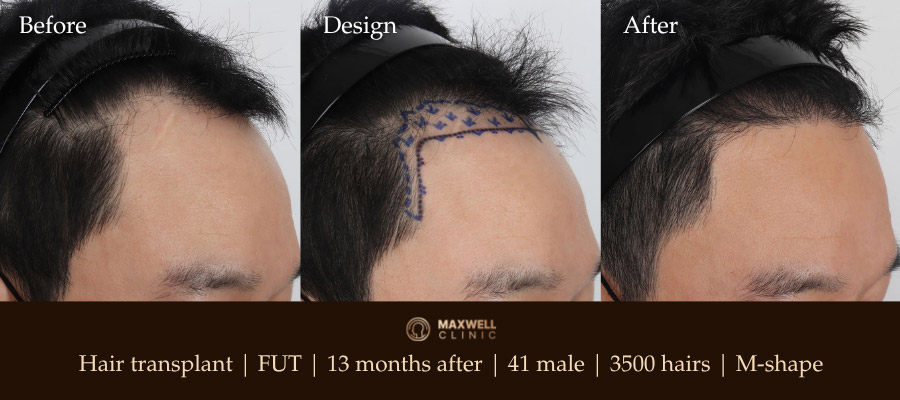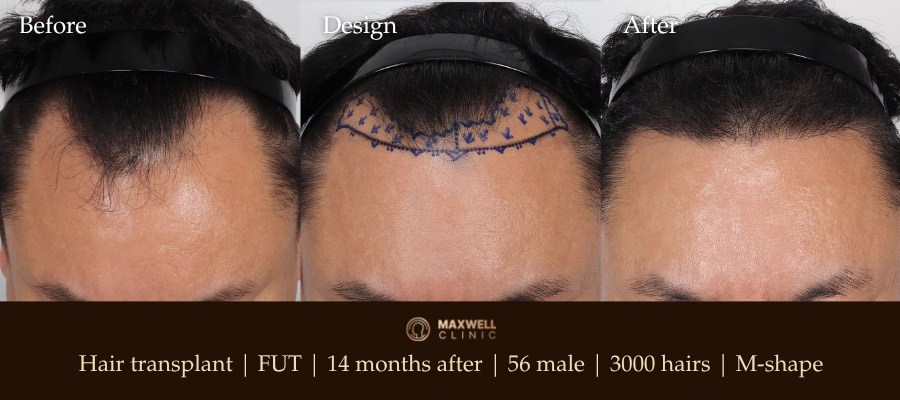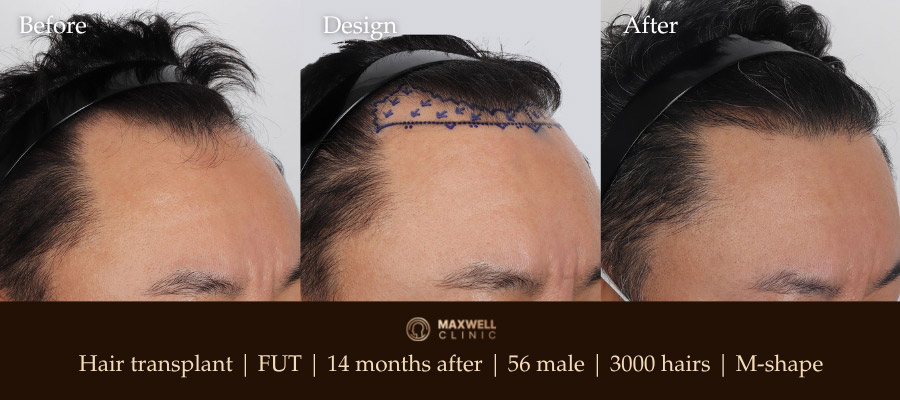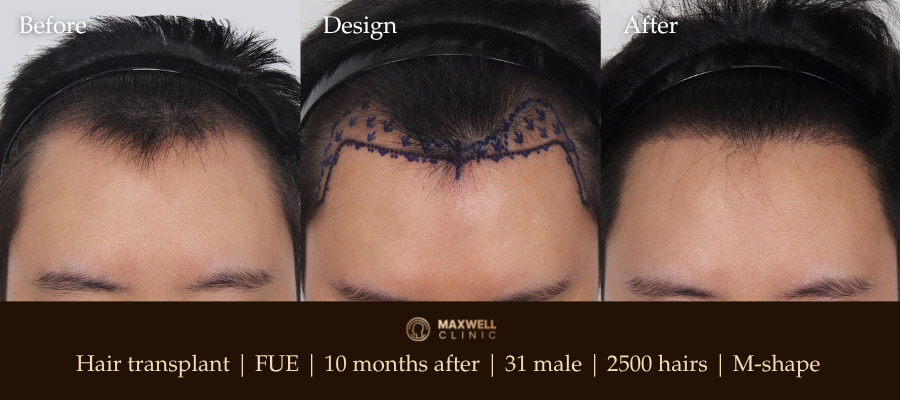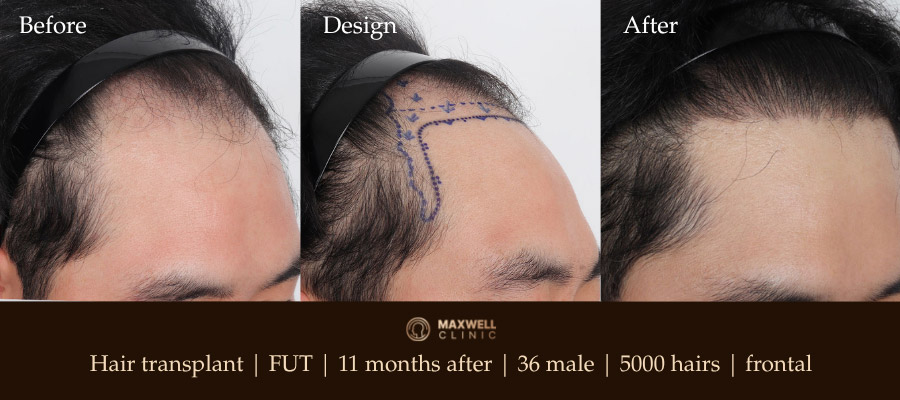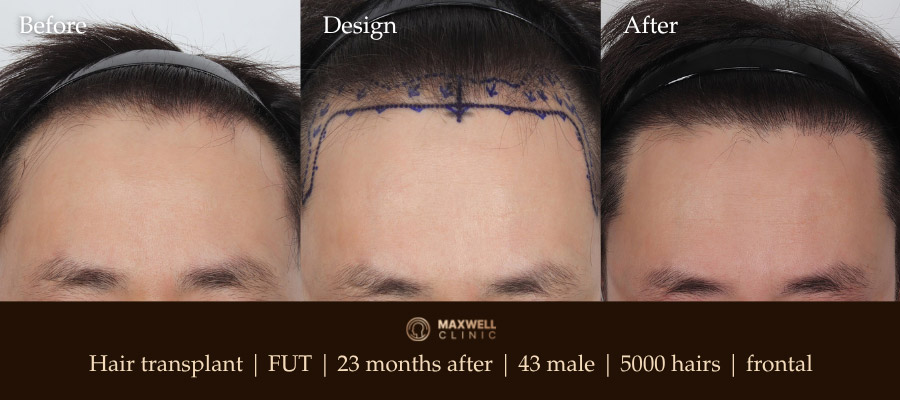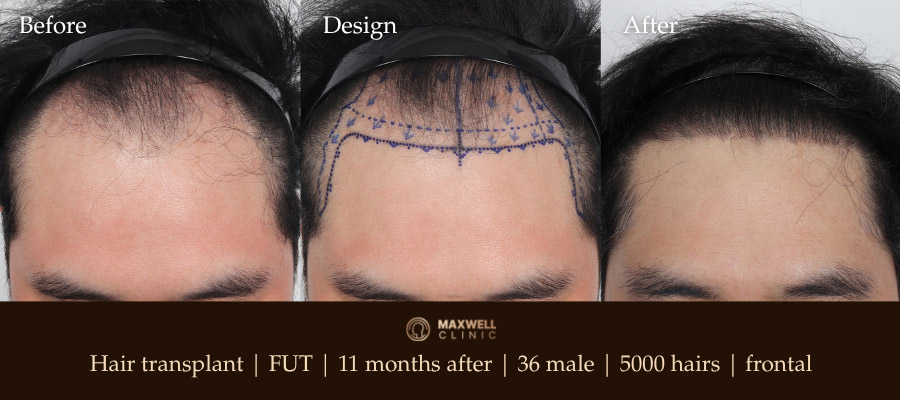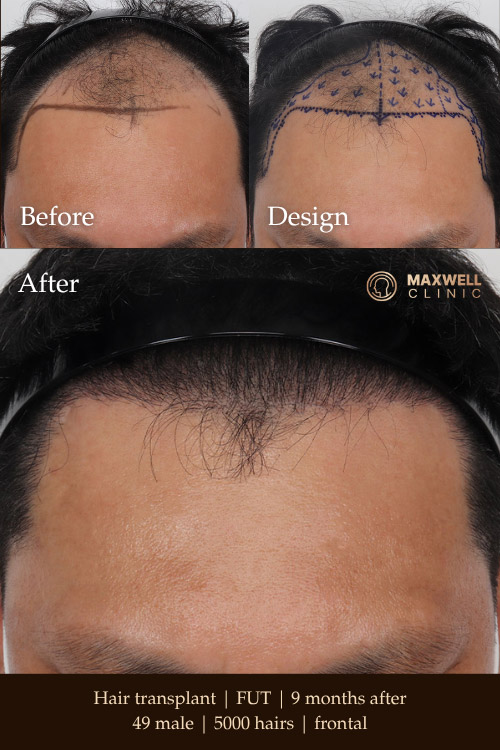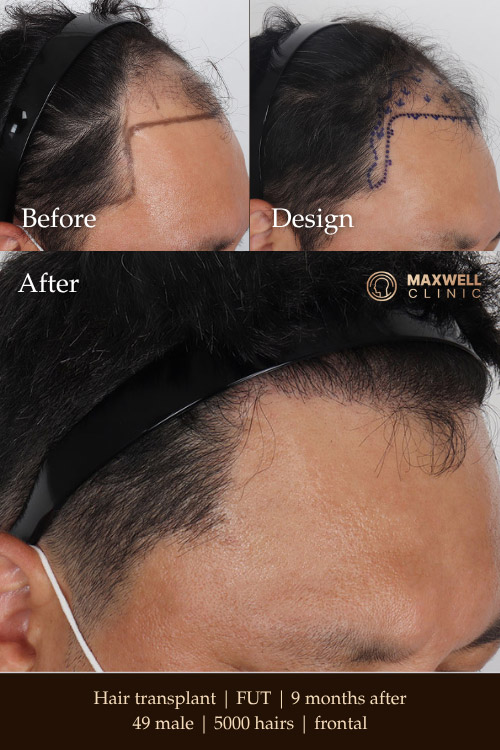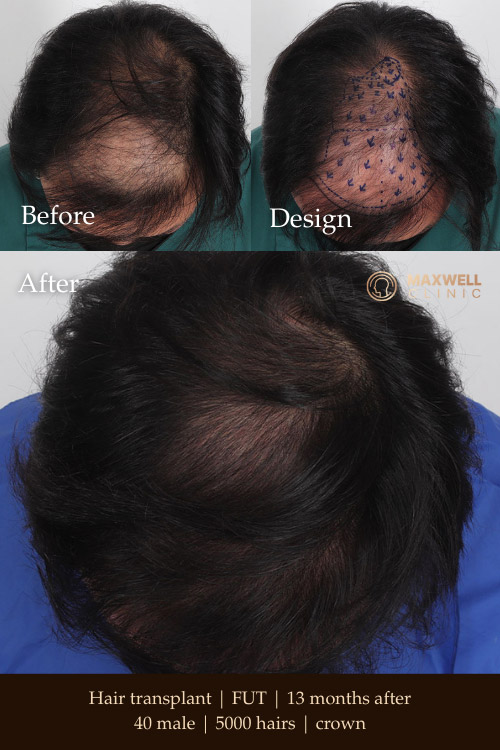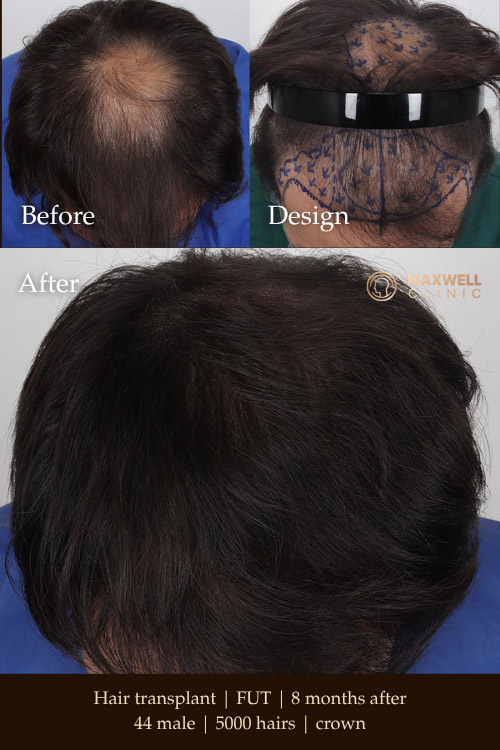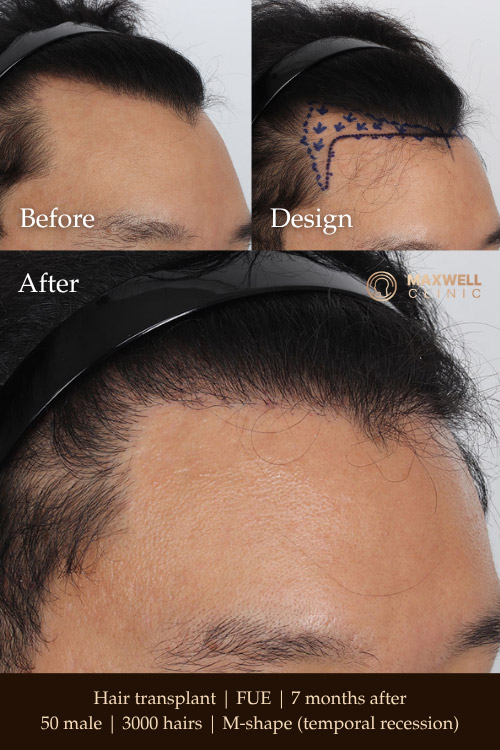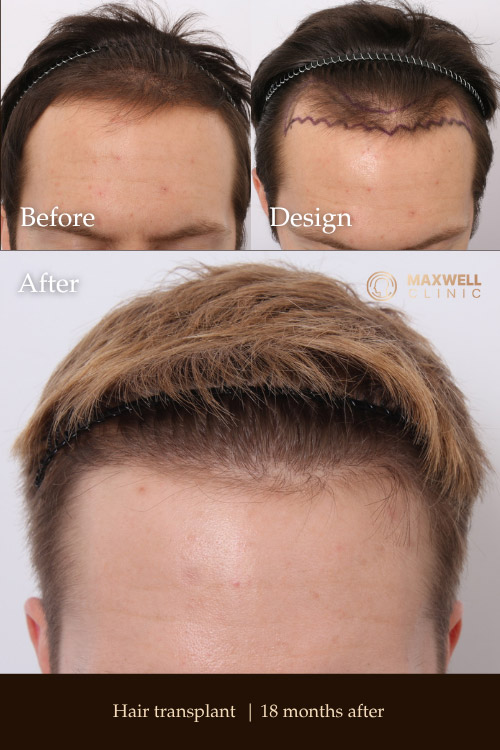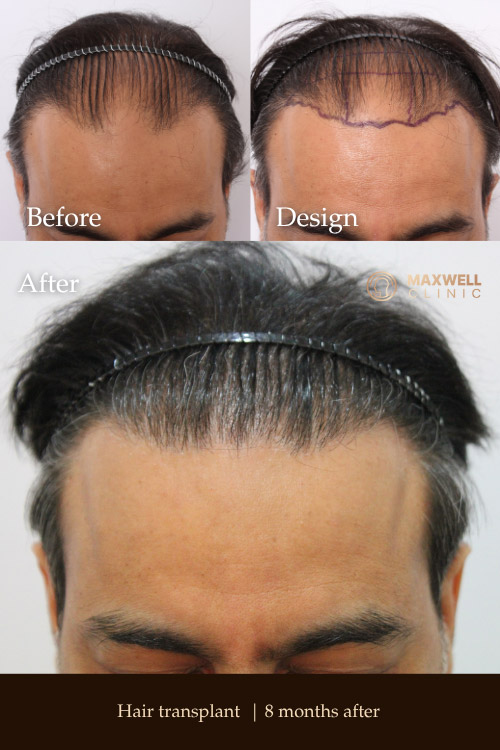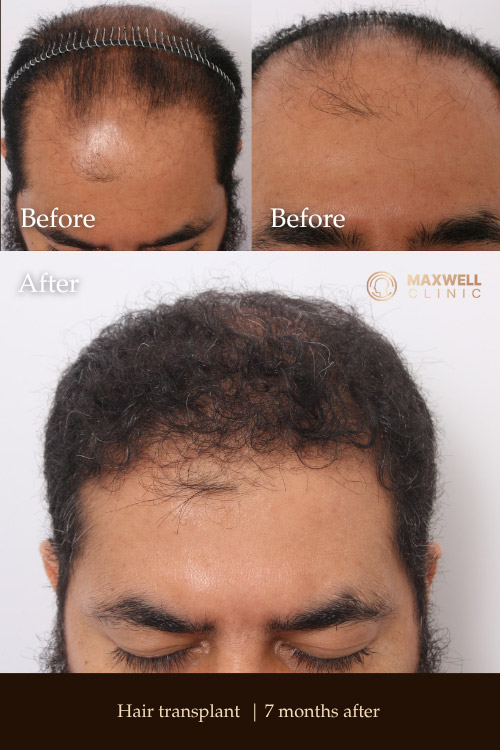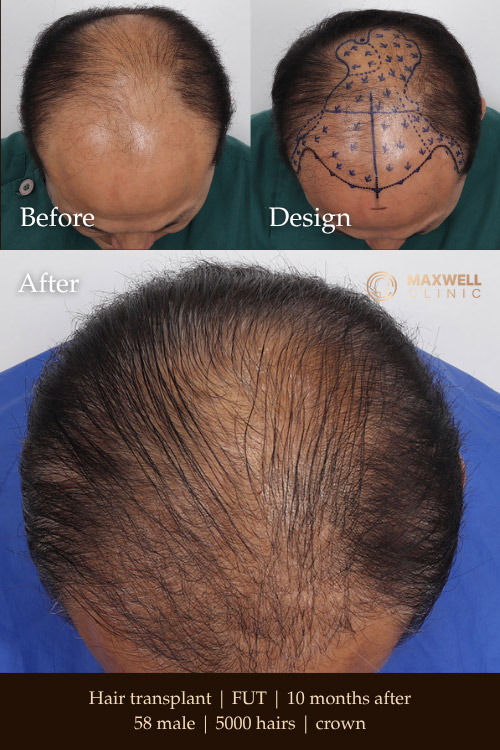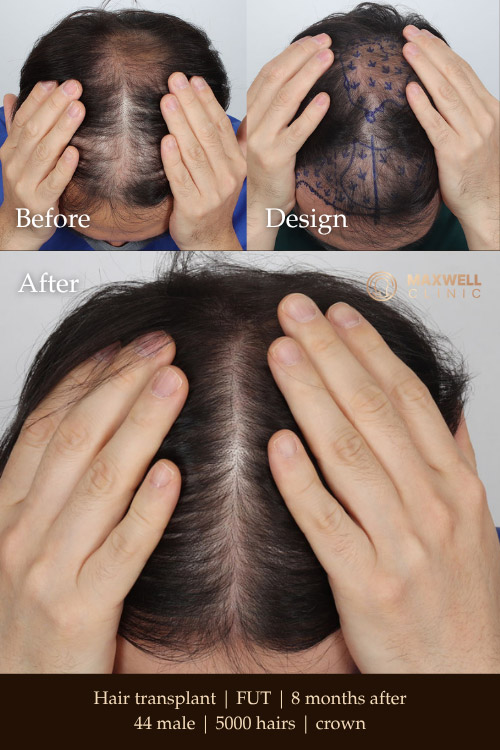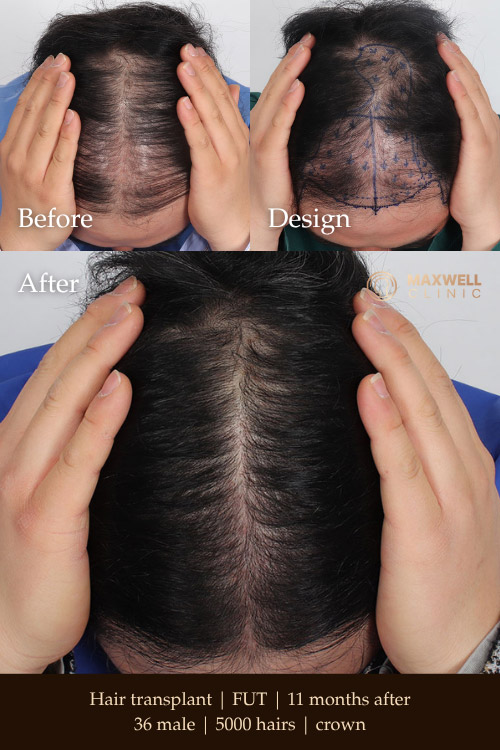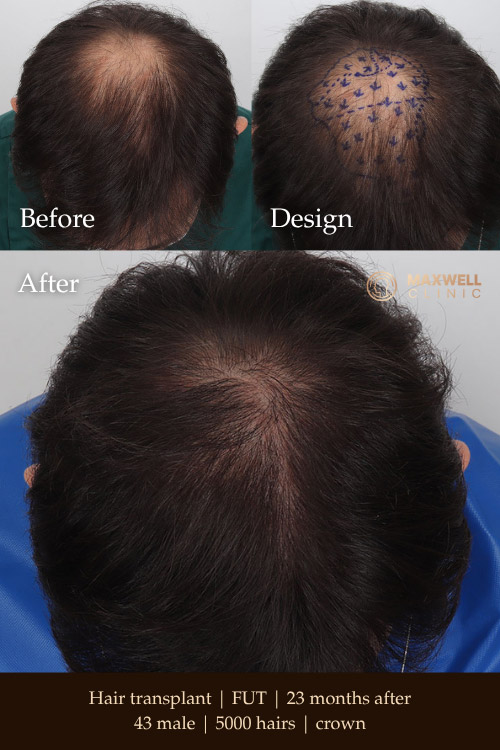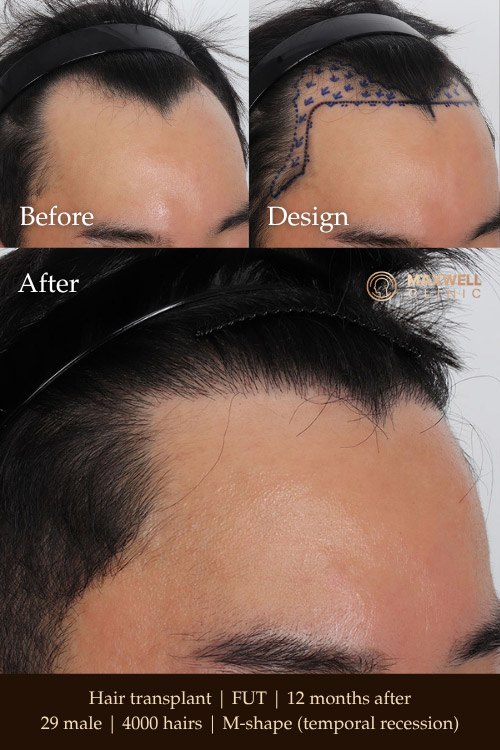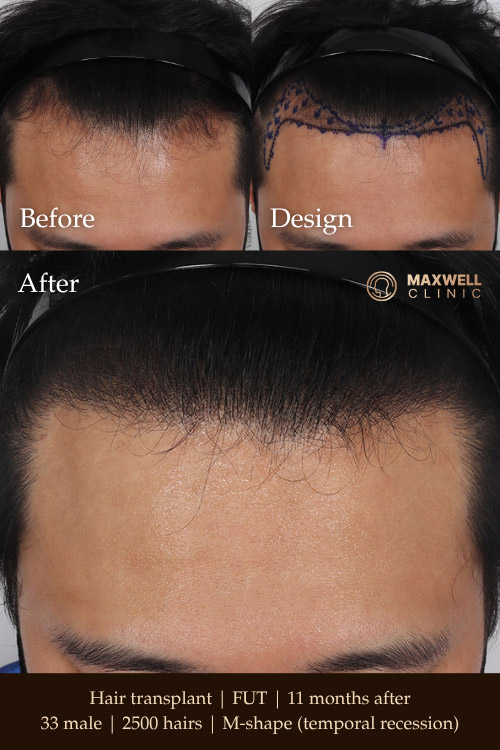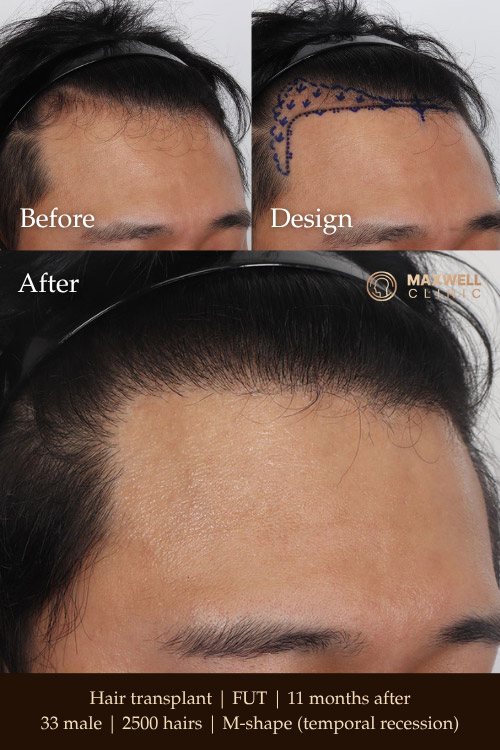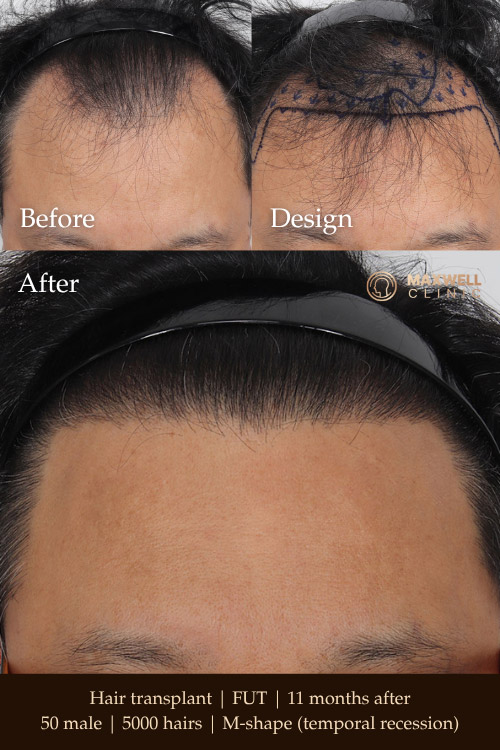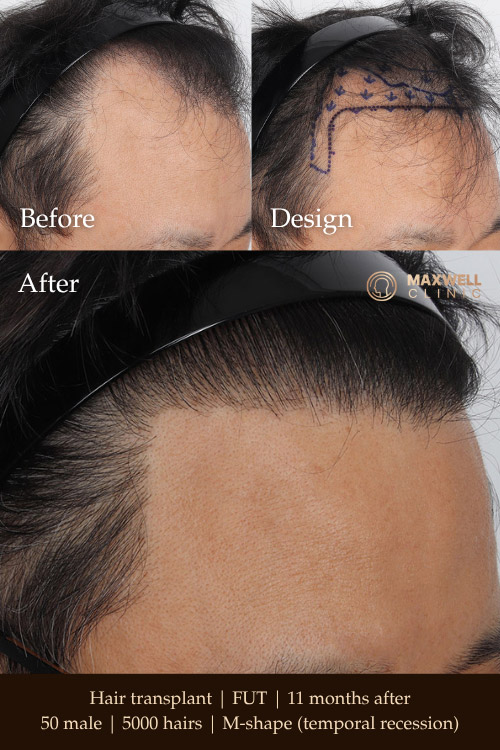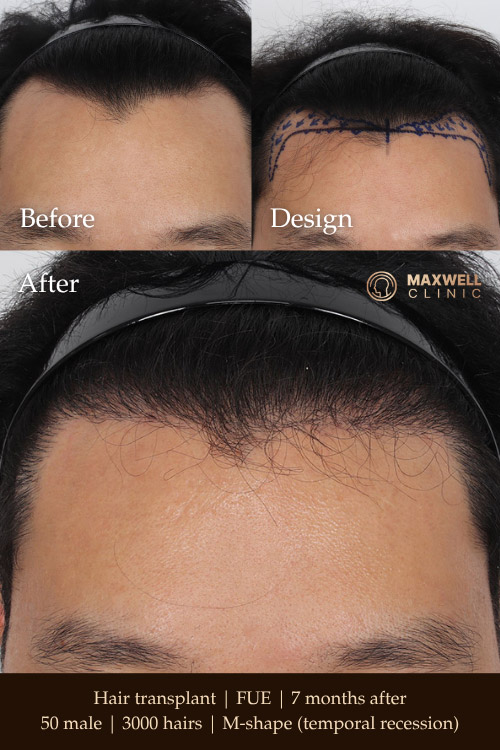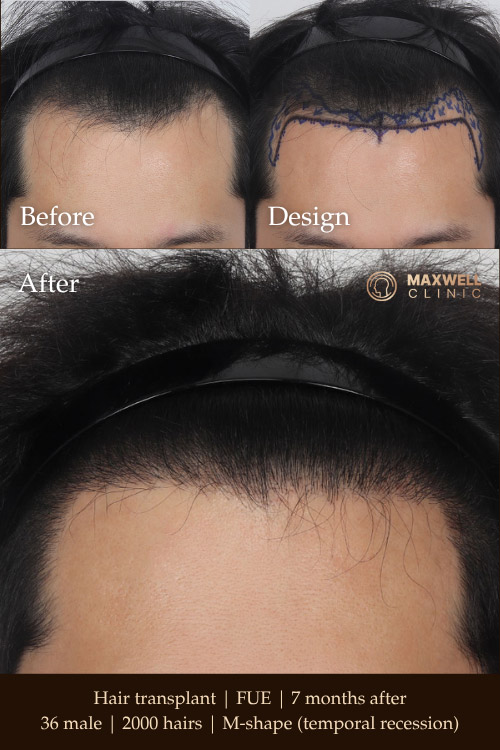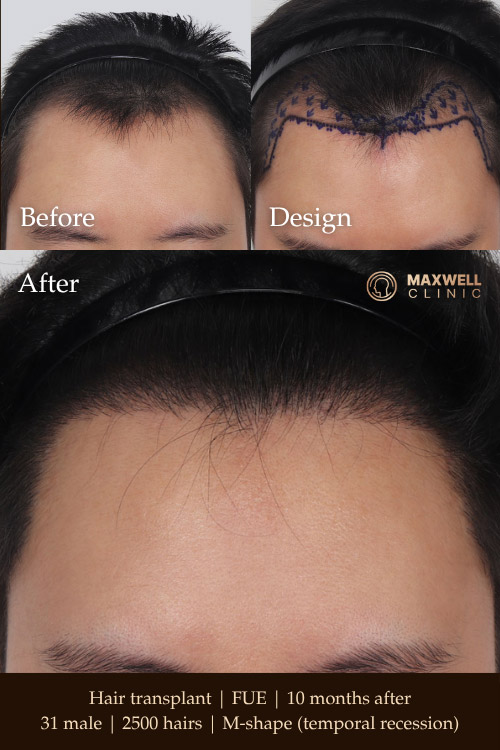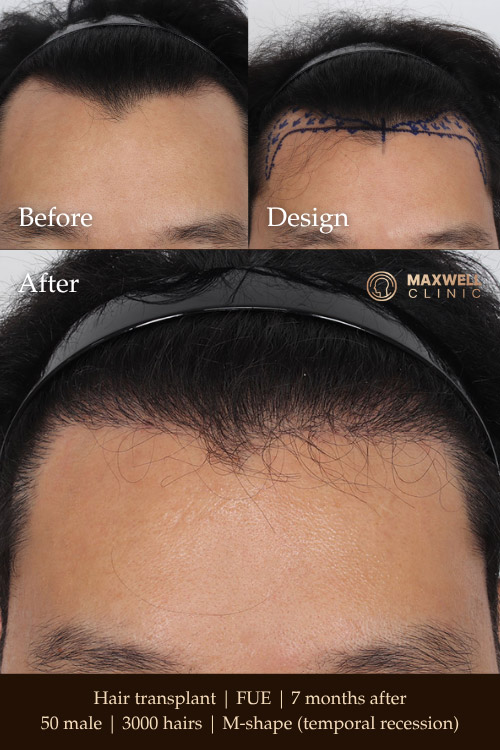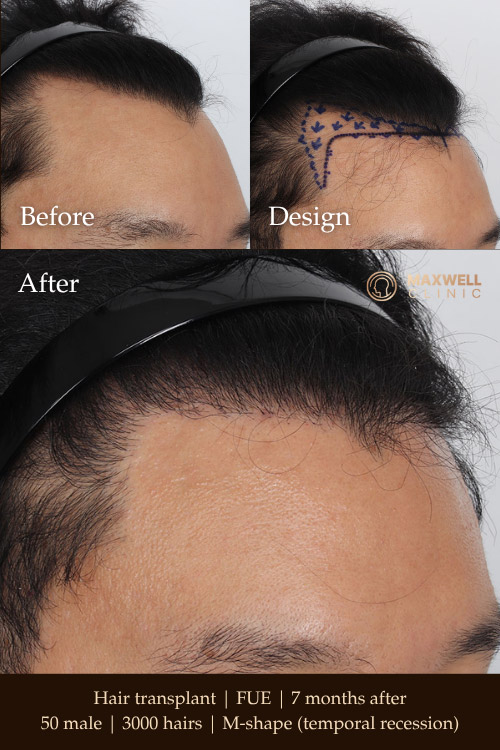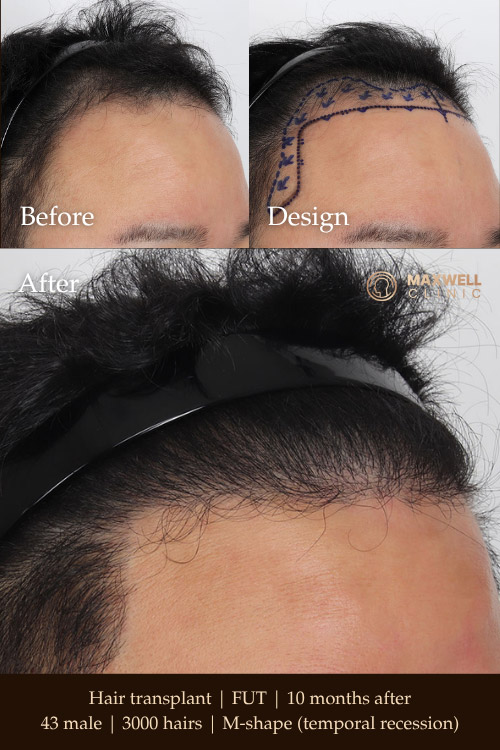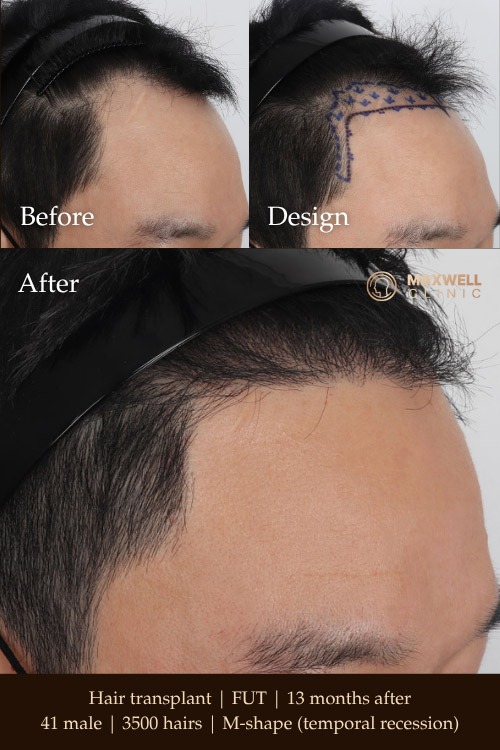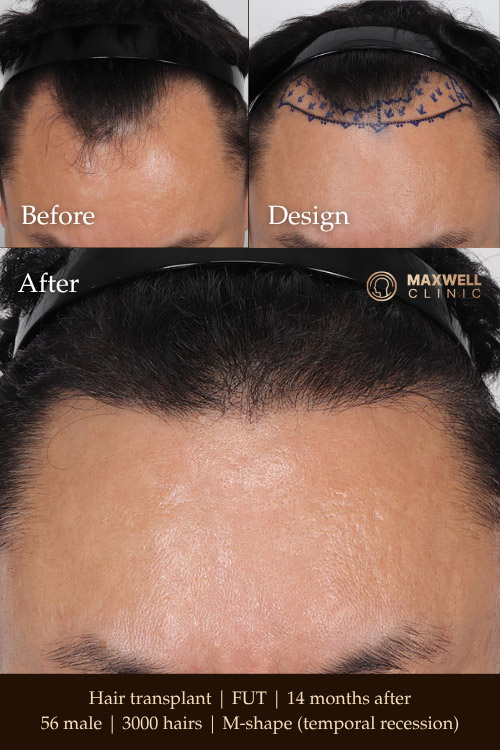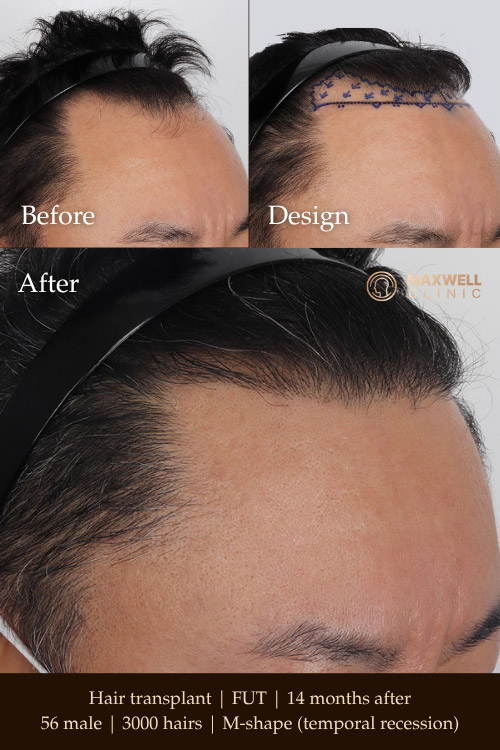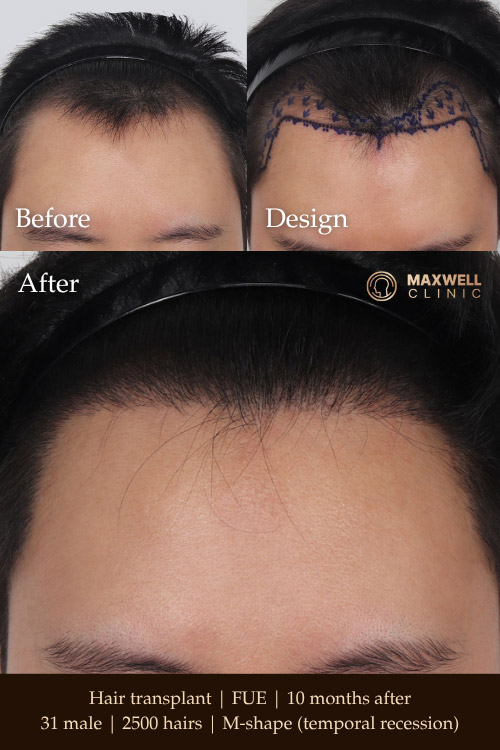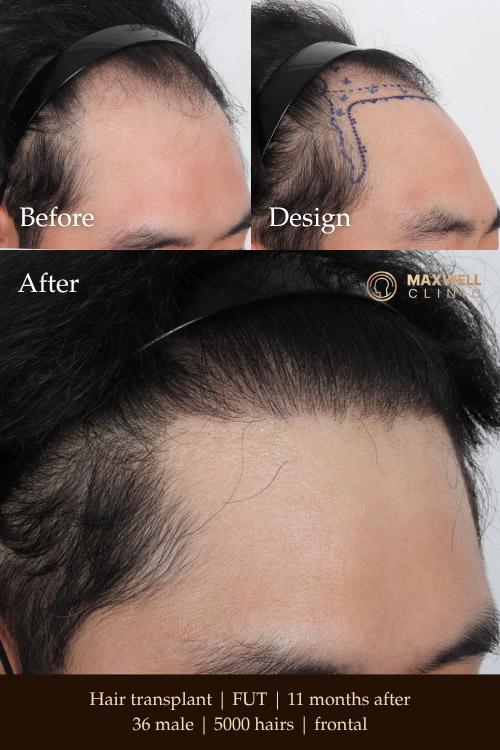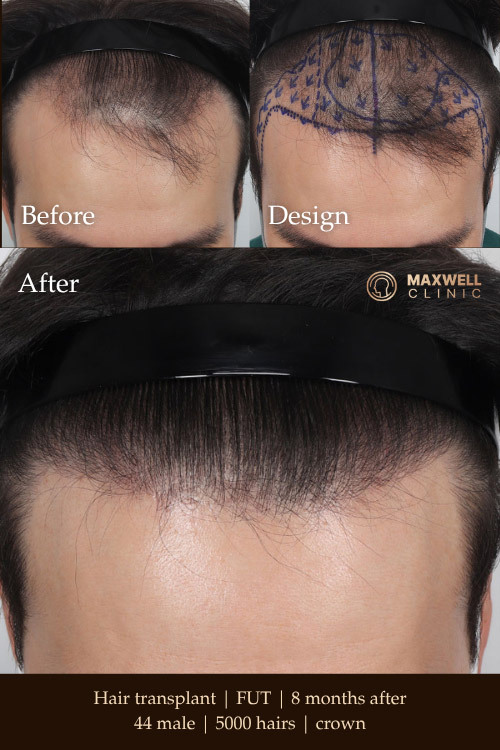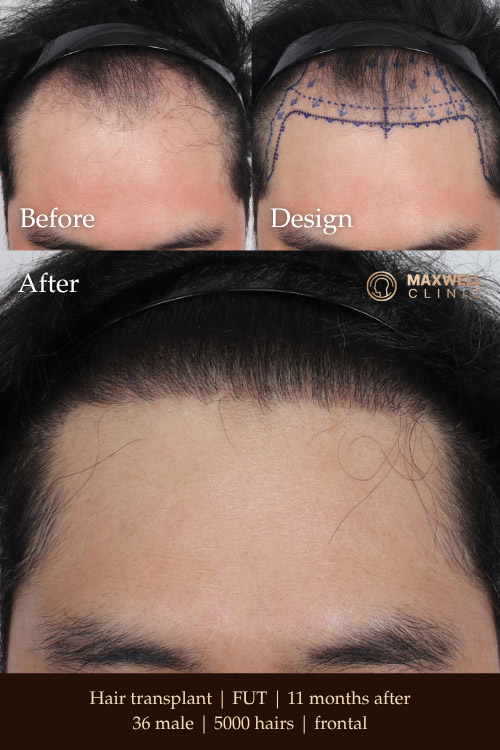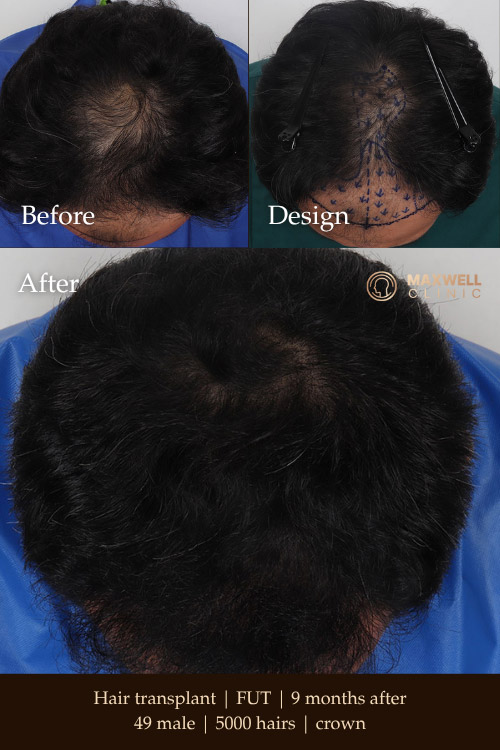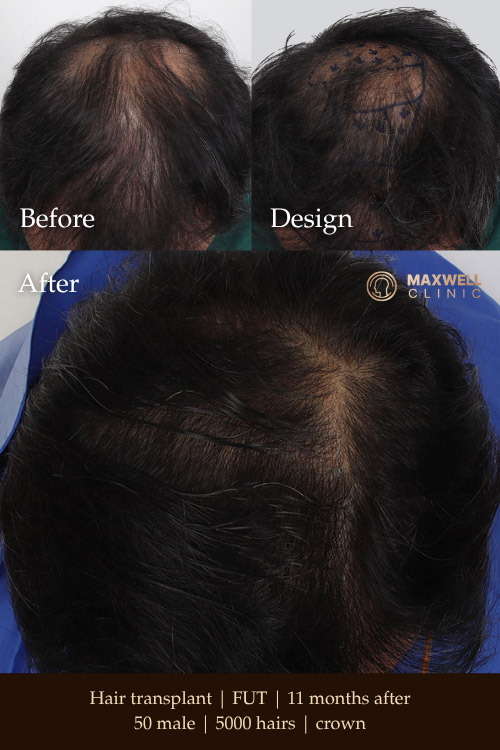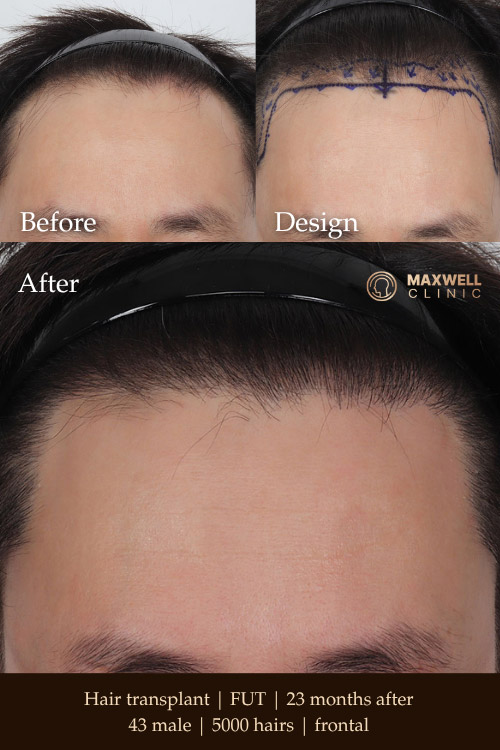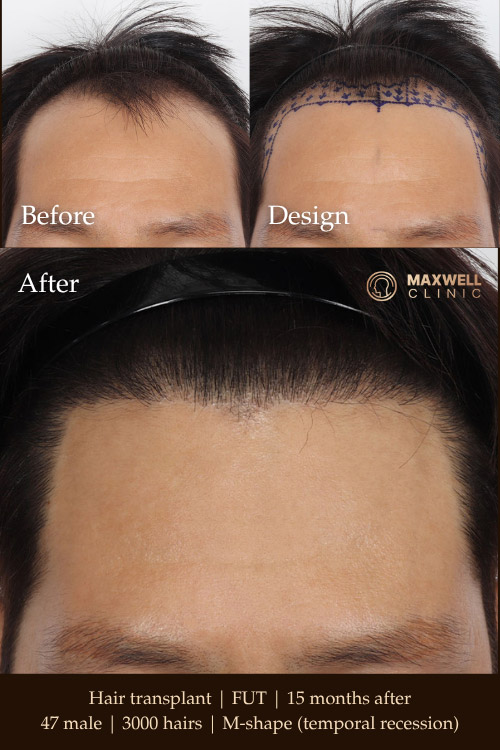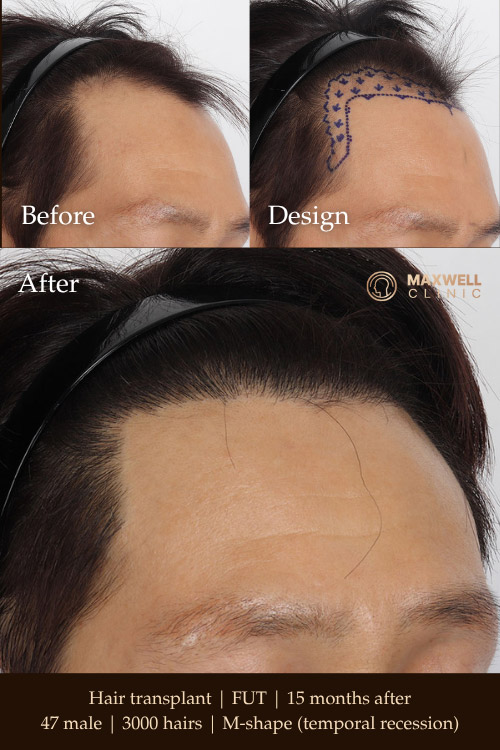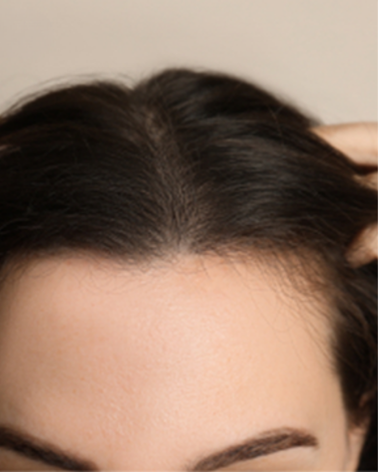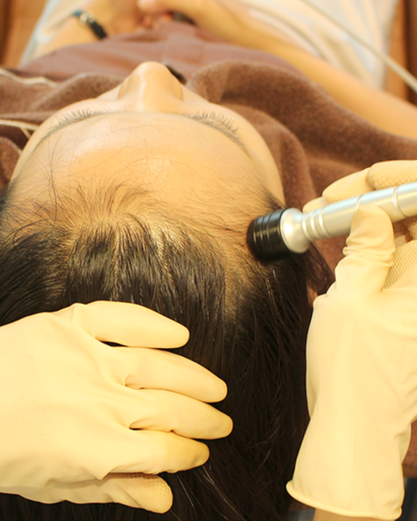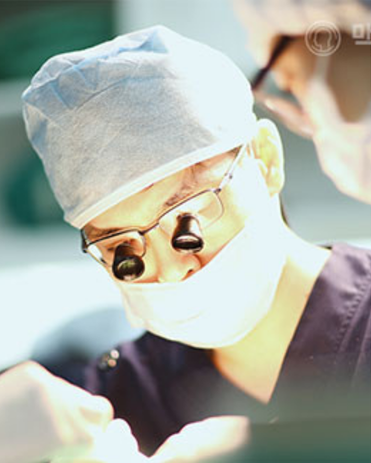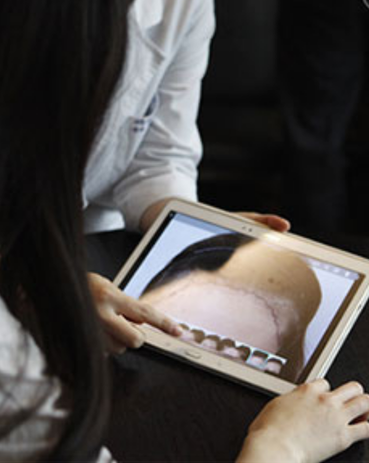Male Hair Transplant
in Korea
Treating Male Pattern Hair Loss Through Transplantation and Restoration

Procedure Time
5-6 Hours*
*2,000-3,000 hairs average
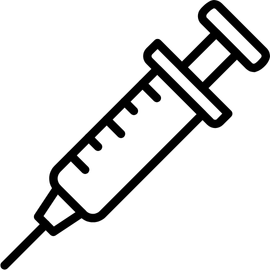
Anesthesia
Sedative + Local
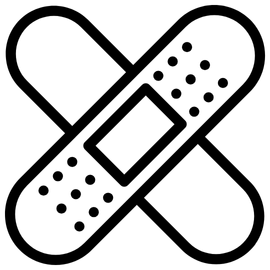
Initial Recovery
2 weeks*
*Normal hair washing may resume

Full Results
10-12 months
What is a Male Hair Transplant?
Male pattern baldness, also known as androgenetic alopecia, is the most common form of hair loss in men. It usually follows a predictable pattern, starting with receding at the temples and often progressing to thinning at the crown, eventually leading to a horseshoe-shaped pattern of hair around the sides and back of the head. Candidates for hair transplant surgery often have well-defined areas of baldness or thinning that have stabilized, meaning their hair loss is not actively progressing. This stabilization is crucial because it helps in the planning of a long-term restoration strategy that takes into account the potential for future hair loss.
Hair transplant surgery at Maxwell offers solutions for male pattern baldness and hair thinning. Utilizing state-of-the-art techniques, Maxwell provides personalized treatments that yield natural-looking results.
Hair Transplant for Men
Before & After
A male receding hairline, commonly known as male pattern baldness, is characterized by the gradual thinning of hair along the temples and forehead, creating an “M” shape. While it’s a natural part of aging, various treatments are available for those who wish to address it, check out some of our patient real cases here!
Candidates for a Male Hair Transplant
Here at Maxwell, we provide hair transplants to a wide variety of people with equally varying degrees of hair loss. While treatment journeys may vary, motivations for seeking a hair transplant are often similar. Additionally, hair transplant candidates must meet certain criteria to qualify for a transplant procedure as opposed to requiring hair loss treatment.
We recommend a male hair transplant to those who:
Why Choose Maxwell for your Hair Transplant?

In-Depth Process
At Maxwell Clinic, we pride ourselves on understanding all our patients’ specific needs. We have crafted a thorough, results-focused process for analyzing each individual’s current situation and creating a unique treatment plan aligning with our patients’ goals. Through our six-step process, we aim to achieve satisfying and realistic results.
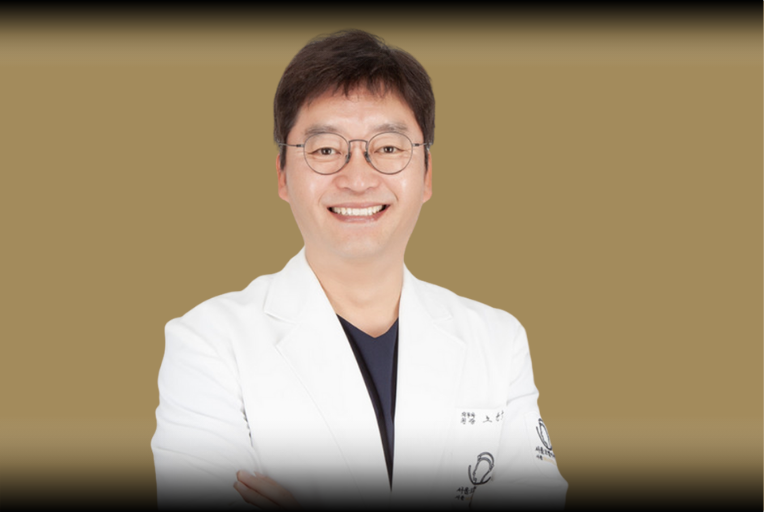
Award-Winning Doctor
Our excellent team of doctors at Maxwell is headed by internationally-qualified and award-winning Doctor Yoon-woo Noh. Recognized as one of Korea’s highest excelling hair transplant doctors, Dr. Noh is the Executive of the Korean Society for Hair Restoration Surgery, and a diplomat to the American Board of Hair Restoration Surgery.
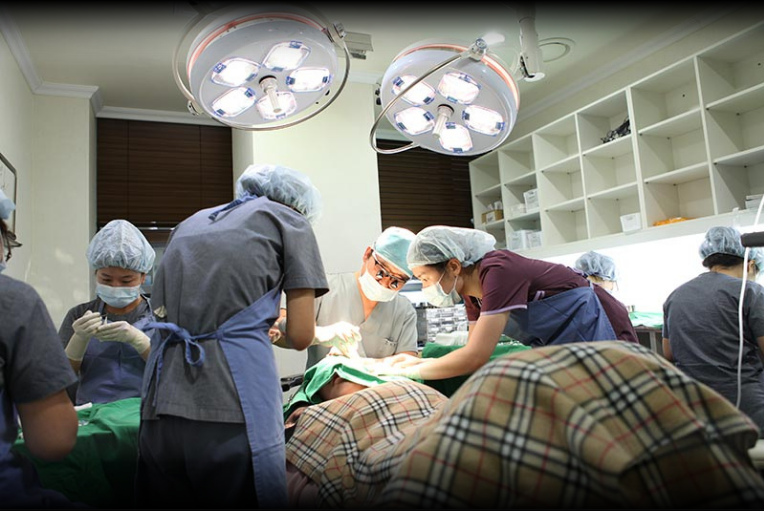
Optimized Procedure
Supporting our excellent doctors here at Maxwell is an incredible medical team ensuring each procedure goes without a hitch. Working precisely and efficiently with state-of-the-art tools, they aid in each follicle extraction and implantation. Highly skilled and professional, they combine speed and care, guaranteeing both efficiency and success.
How is a Hair Transplant Done?
A hair transplant can be a significant step towards regaining a fuller head of hair, confidence and a sense of normalcy. Maxwell Hair Clinic offers comprehensive solutions tailored to different needs and stages of hair loss.
From consultation to aftercare, we analyze each patient’s case in order to establish the most effective treatment plan, including the method of transplantation, the number of hairs needed, the hairline design, and the aftercare.
Our Six-Step Hair Transplant Process
1
Consultation
The process begins with a comprehensive consultation to analyze your hair loss pattern and discuss expectations.
2
Diagnosis
Specialists determine the extent of your hair loss and predict future patterns using diagnostic tools.
3
Design
A personalized hairline and density design is created to match your facial structure and preferences.


4
Harvest
Follicular Unit Extraction (FUE), Follicular Unit Transplantation (FUT), or a blend of both methods is employed for optimal results.
5
Transplant
Precise insertion of hair follicles ensuring a natural growth pattern and high-density results.
6
Aftercare
Guidance on post-surgical care to ensure the best outcome, including medication, laser therapy, and follow-up visits.
Our Six-Step Hair Transplant Process
1
Consultation
The process begins with a comprehensive consultation to analyze your hair loss pattern and discuss expectations.
2
Diagnosis
Specialists determine the extent of your hair loss and predict future patterns using diagnostic tools.
3
Design
A personalized hairline and density design is created to match your facial structure and preferences.

4
Harvest
Follicular Unit Extraction (FUE), Follicular Unit Transplantation (FUT), or a blend of both methods is employed for optimal results.
5
Transplant
Precise insertion of hair follicles ensuring a natural growth pattern and high-density results.
6
Aftercare
Guidance on post-surgical care to ensure the best outcome, including medication, laser therapy, and follow-up visits.

Consultation & Diagnosis
Understanding Hair Loss Stages
Hair loss affects men in various stages, from minimal hairline recession to significant baldness. The Norwood Scale, classifies the stages of hair loss, ranging from stage I, a minimal recession, to stage VII, severe baldness.
During the initial consultation at Maxwell, specialists evaluate the patient’s stage to recommend the most effective plan. Early stages might require less invasive hair loss treatments, while advanced stages could benefit more from hair transplant surgery.
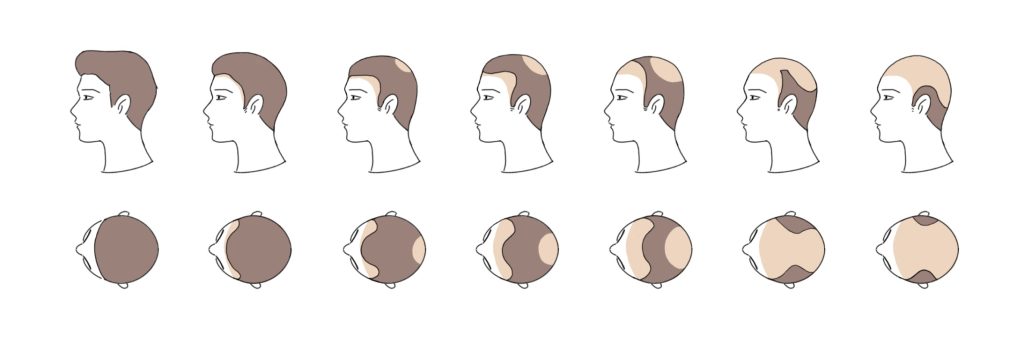
Design
Determining the Number of Hairs Needed
Determining the correct number of grafts for a successful hair transplant requires factors beyond just the treatment area.
The number of grafts needed for a successful hair transplant varies greatly depending on the individual’s hair loss extent, donor hair density, and desired outcome. Typically, a graft contains 1-4 hair follicles. For minor coverage, a few hundred grafts may suffice, while extensive baldness may require thousands.
During the consultation process, specialists at Maxwell use sophisticated tools to assess the donor area’s capacity and to plan the distribution of grafts.

Designing the Hairline and Crown
Natural Gradient Hairline
The natural hairline gradually thickens as it moves backward, which is why we utilize a process called gradient transplantation. This involves selecting hair follicles of different sizes before transplanting them. This procedure requires experience and expertise, as it is quite sophisticated.

Considering Hair Growth Directions
The hairline and crown require different transplantation techniques. High density is crucial for the front, while for the crown, it’s important to cover the maximum area by focusing on the angle and direction of hair growth. Maxwell Hair Clinic emphasizes a detailed method for crown transplants, targeting density, aesthetic harmony, and hair quality for a naturally full appearance. We carefully place thicker grafts in the crown and finer grafts outward for a smooth transition with the existing hair.

Preventive and Predictive Design
Hair loss can continue even after transplantation. At Maxwell, we predict the progression of hair loss and transplant follicles preemptively. This ensures that if hair loss continues, it will remain unnoticeable.
Different strategies are needed for different hair loss stages, this is particularly important for younger patients who are in their 20s to 40s, considering their active hair loss progression. Without these predictive measures, you could face the need for additional surgeries within 2-3 years.
We ensure that our transplants not only address current thinning areas but also anticipate and cover future balding spots. This approach makes maintenance easier and reduces the need for additional procedures. Our strategy offers significant benefits, including cost savings, and emphasizes the importance of choosing experienced professionals for a personalized transplant plan that considers long-term outcomes.

Harvesting & Transplant
Types of Hair Transplant

Follicular Unit Extraction (FUE)
FUE is a highly favored method for hair transplantation due to its precision, minimal scarring, and quick recovery time. This approach involves extracting individual hair follicles from the donor area using a micro punch tool, which ranges from 0.6-1.0mm in diameter.

Follicular Unit Transplantation (FUE)
FUT, also known as strip surgery, is renowned for its efficiency in covering larger areas of hair loss, delivering highly dense and natural-looking results. This technique involves extracting a strip of skin from the donor area. Hair follicles are then meticulously harvested from this strip and prepared for transplantation.
Shaving Sites for Hair Transplant Surgery

Partial Shaving
The partial shaving approach focuses on a specific scalp section, often the donor area, keeping the remaining hair untouched. Ideal for those receiving fewer grafts and wishing to preserve their current hairstyle This method allows the unshaven hair to conceal the treated area, providing a more discreet solution than complete shaving.

Strip Shaving
The strip shaving technique involves shaving small areas in the donor zone for follicle extraction. This less visible method enables a quicker return to daily life, as surrounding hair conceals the treated sections, making it ideal for those seeking discreet recovery.

No Shaving
The no-shave technique eliminates the need for shaving, offering a discreet hair transplant option. It’s ideal for maintaining hairstyle continuity and minimizing visible signs of the procedure. This approach supports a quick return to daily activities, appealing to those seeking a subtle restoration process.
Follicle Extraction – Our Team’s Process
Precision in Follicle Handling
Every step, from the extraction of hair follicles from the donor area to their placement in the recipient site, is performed with utmost precision. Special attention is paid to maintaining the integrity of the follicle during extraction and implantation, minimizing any trauma that could affect survival.
Advanced Extraction Tools
Utilizing state-of-the-art extraction tools that allow for a minimally invasive procedure helps maintain the health of the follicles. These tools are designed to reduce transection rates, ensuring more hair grafts remain viable for transplantation.
Optimized Conditions for Grafts
Between extraction and implantation, grafts are kept in a carefully controlled environment to preserve their vitality. This includes maintaining the correct temperature and hydration levels to prevent desiccation or damage.
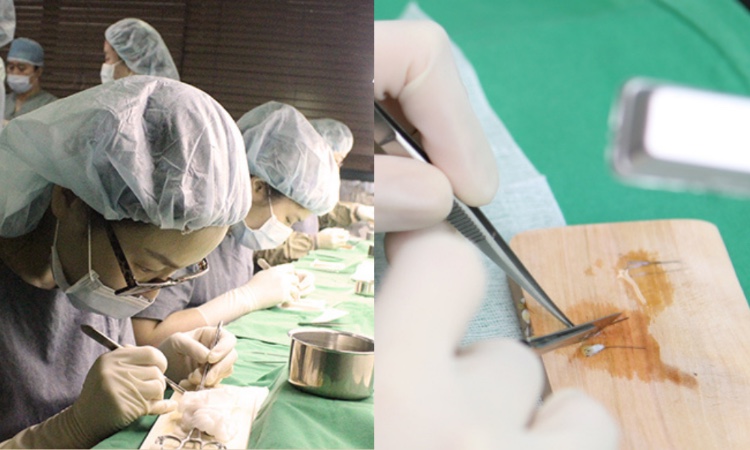
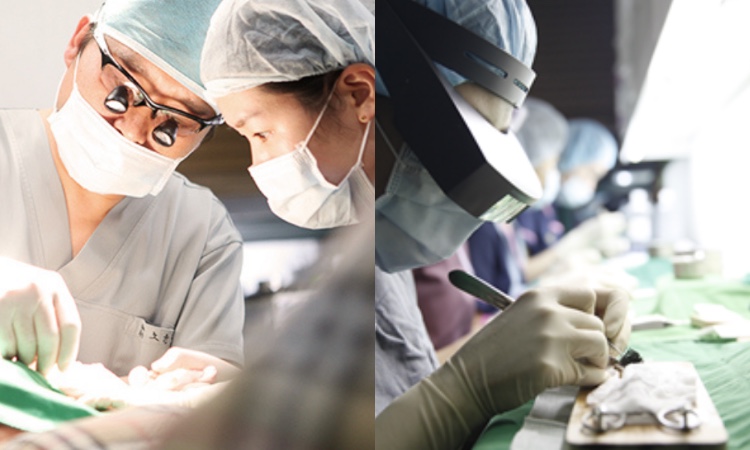
Speed and Efficiency
Recognizing that time out of the scalp can negatively impact follicle survival, Maxwell’s procedures are optimized for speed without compromising on quality. The time from extraction to implantation is minimized to keep the grafts viable.
Careful Implantation
The technique used for implanting the grafts ensures that they are placed at the correct depth and angle in the scalp. This precision supports optimal regrowth, as it mirrors the natural growth direction and depth of hair, fostering a better integration with the scalp.
Post-Operative Care and Monitoring
Maxwell provides comprehensive post-operative care instructions and ongoing monitoring. This includes guidance on washing, activity levels, and medications to support follicle health, as well as follow-up appointments to assess the progress of transplant growth.
Aftercare
Recovery Process
Aftercare is crucial for the success of a hair transplant surgery. Maxwell provides aftercare instructions tailored to the specifics of each procedure. Recommendations often include gently washing with prescribed shampoos, avoiding direct sunlight, and refraining from strenuous activities that might stress the scalp. Medications to support hair growth and prevent further loss may also be prescribed. Regular follow-up appointments are essential to monitor progress and ensure the health of both the transplanted and existing hair follicles.

Hair Transplant Recovery Timeline

Before Hair Transplant

9 Days After Hair Transplant

5 Months After hair transplant

9 months after hair transplant
Day 1 – 30
You may feel pain for the first week as the scalp needs time to heal. You will see scabbing in two locations on the scalp: the donor area and the recipient area. These scabs are small, so they heal quickly. The day after the surgery, we will provide post-operative care, including removing the bandages from the donor area, disinfection dressing, shampoo service and laser treatment for the maximum viability. We recommend using antibiotic spray for 3 days. Most of our patients fly back to their home country the day after the shampoo service. If you need to have stitches removed, our surgeons may use dissolvable stitches or provide medical documentation so that you can have the remaining stitches removed in your home country. In that case, you can fly the day after the surgery.
Month 1 – 3
70-80% of the transplanted hair, along with some original hairs, will fall out during this period. However, please do not worry, as this is normal during the recovery process. After 3 to 5 months, the hair will begin to grow normally. If you experience any discomfort during the recovery process, you can contact us at any time, and we will provide assistance even after the procedure. If you are living in Korea, you can also visit our clinic regularly for check-ups during this period.
Month 3 – 6
This is the period when patients worry the most because the hair goes through shock loss. However, it is also the time when new hair starts to grow slowly, typically at a rate of about 1 cm per month. Please do not worry, as it takes a bit more time before it starts to resemble the desired result.
Month 6 – 12
Hair will actively grow in the recipient area, and with hair loss treatment, the number of hairs and their thickness can even improve during this period. The hair will gain in thickness & length, and may also change in character. It generally takes one year to see the full results of a hair transplant. We recommend having a 1-year follow up with your surgeon, as this is usually the time you can expect a full result.
* Recovery timeline and results will vary by person. This timeline is an average of the standard hair transplant experience, and should be read simply as a guideline.
Our Other Services
Our International Patients

One-Day Treatment at Maxwell Hair Clinic
At Maxwell Hair Clinic, we lead with cutting-edge, effective hair transplant solutions while maintaining high care standards. Our clinic prioritizes patient-focused treatments, ensuring that the entire hair transplant process can be completed in just one day, making us a popular choice for a global clientele. Besides recognizing the importance of concise and effective treatment, we understand the needs of patients from across the globe – including the USA, Canada, Australia, Singapore, Malaysia, Japan, France, Mexico, UAE, Saudi Arabia, and South Africa. All patients experience a comfortable, well-organized visit from initial consultation through surgery and post-op care, designed for fast recovery. Our doctors and medical team’s expertise promise a seamless experience, ensuring the best results for each individual, as well as minimal downtime and a quick return to your schedule.
What to Expect as an International Patient
1
Full Online Consultation
Begin your journey with a simple online consultation. Our consultants will guide you through creating your treatment plan and scheduling your procedure.
2
Travel to Korea
We can provide assistance in arranging an airport pickup. This service costs $80. If you wish to travel independently, you can take the airport bus, which costs $15.
3
Cost Consideration for Travel
– Accommodation: Typically $50-$200 per day.
– Meals: $10~$20 per meal on average.
– Flights: Check a few months in advance to find the best deal.
4
Meet Your Doctor
Our consultants and medical team will welcome you to our facility for your final diagnosis and personalized hairline design.
5
Treatment Day
We will provide you with a personal translator for the duration. After the procedure, we will assist with your after care and medicine pickup, and see you off to your accommodation.
6
Check Up, Relax, Fly Home
The following day, you will have a check-up appointment. Afterwards, you are free to enjoy your time in Korea. If needed, we can assist with airport drop-off arrangements for your departure.
Maxwell Hair Clinic
begin your consultation today
Consulting with Maxwell Hair Clinic is fast and simple. After you fill out the consultation form, one of our patient team members will reach out to you via email. Our initial online consultation is free of charge.
Our Process for International Patients
- Share Your Information: Send us your details along with clear photos of your areas of concern. This helps our medical team understand your needs from the start.
- Online Medical Review & Personalized Quote: Our doctor will carefully assess your photos and provide an online consultation. You’ll receive an accurate, personalized treatment plan and quote based on your hair and scalp condition.
- Schedule Your Procedure: Once you’re ready, book your surgery on a date that works for you. Our team will guide you through the steps to prepare for your visit.
- Travel to Korea With Full Support: Our international patient coordinators will assist you throughout your journey—ensuring a smooth experience with no language barriers.
- One-Day Surgery: Your hair transplant procedure will be completed in just one day using our advanced techniques.
- Next-Day Shampoo & Follow-Up: Return to the clinic the following day for a gentle shampoo session and a post-operative checkup with the doctor.
- Virtual Follow-Up Appointments: We stay connected with you throughout your recovery, with virtual check-ins at 1 month, 6 months, and 12 months.
- Enjoy Your Results: Watch your new hair grow and enjoy your final results over the coming months.
Superior Results
Maxwell Guarantee
Maxwell Hair Clinic Patient Reviews
What are our patients saying?
Frequently Asked Questions
What is a male hair transplant?
A male hair transplant is a surgical procedure designed to address male pattern baldness by transplanting hair follicles from donor areas to areas experiencing hair loss, resulting in natural-looking hair restoration.
Who are ideal candidates for a male hair transplant?
Ideal candidates are individuals with stabilized male pattern baldness, sufficient donor hair, and realistic expectations about the outcomes of the procedure.
What techniques are used in male hair transplants at Maxwell Hair Clinic?
Maxwell Hair Clinic utilizes advanced techniques such as Follicular Unit Extraction (FUE) and Follicular Unit Transplantation (FUT) to achieve natural-looking results tailored to each patient’s needs.
What is the recovery time after a male hair transplant?
Initial recovery typically takes about two weeks, during which normal hair washing may resume. Full results are usually visible within 10 to 12 months post-procedure.
How does Maxwell Hair Clinic ensure natural-looking results?
The clinic employs a meticulous six-step process, including personalized hairline design and high-density transplantation, to ensure results that blend seamlessly with the patient’s natural hair.
What is the experience level of the surgeons at Maxwell Hair Clinic?
The clinic is led by award-winning Dr. Yoon-woo Noh, an internationally recognized expert in hair restoration with extensive experience in the field.
What aftercare services are provided following a hair transplant?
Maxwell Hair Clinic offers comprehensive aftercare, including detailed post-operative instructions and follow-up appointments to monitor progress and ensure optimal healing.
How can international patients arrange a hair transplant at Maxwell Hair Clinic?
International patients can begin with a free online consultation, after which the clinic assists with travel arrangements, including airport transfers and accommodation, to ensure a seamless experience.
What is the typical duration of a hair transplant procedure at Maxwell Hair Clinic?
The procedure typically lasts between 5 to 6 hours, depending on the number of grafts and the specific technique used.
Are the results of a hair transplant permanent?
Yes, the transplanted hair is generally permanent, as it is resistant to the hormones that cause hair loss. However, ongoing care may be recommended to maintain overall hair health.

